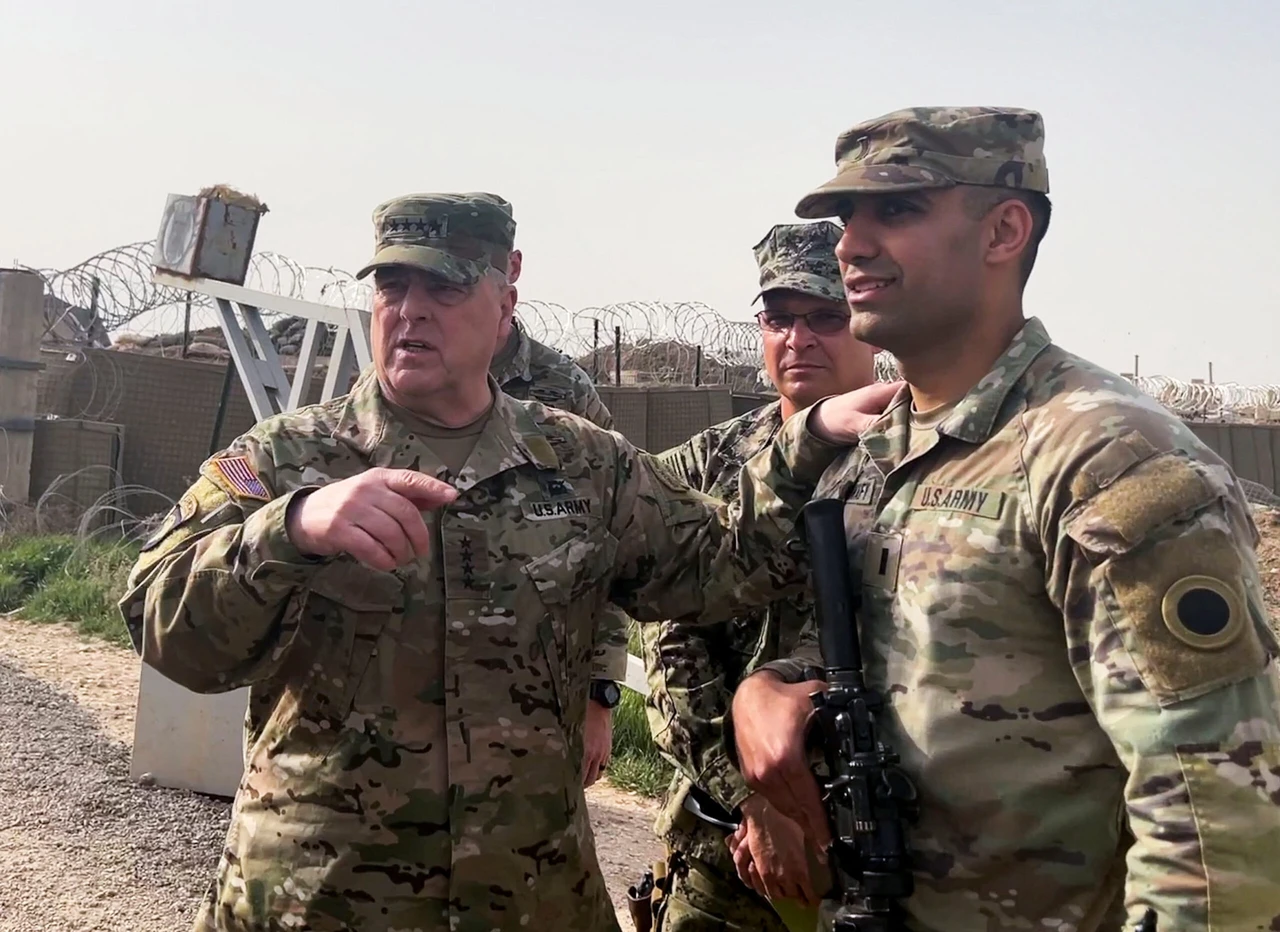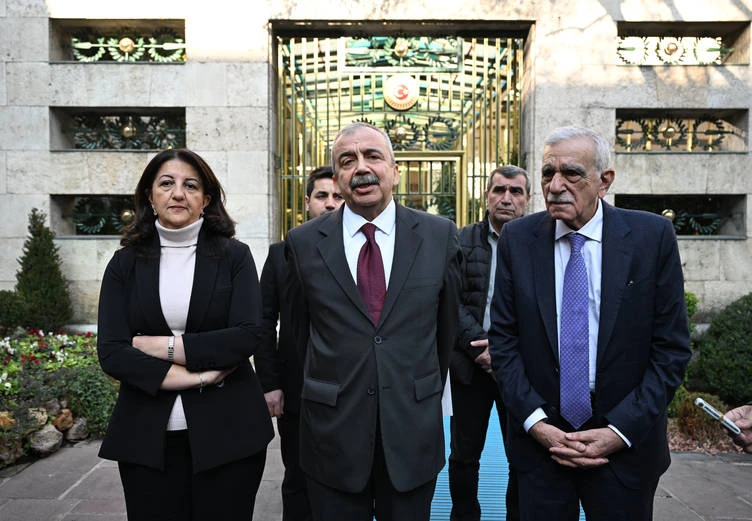British soldiers in US uniforms at Turkish border, says Turkish columnist
 U.S. Joint Chiefs Chair Army General Mark Milley speaks with U.S. forces in Syria during an unannounced visit, at a U.S. military base in Northeast Syria, March 4, 2023. (Reuters)
U.S. Joint Chiefs Chair Army General Mark Milley speaks with U.S. forces in Syria during an unannounced visit, at a U.S. military base in Northeast Syria, March 4, 2023. (Reuters)
In his recent column, Turkish writer Yahya Bostan analyzed remarks made by Turkish Foreign Minister Hakan Fidan during a television appearance on Haberturk.
Bostan pointed out that an important remark by Fidan was largely overlooked. In response to a question about the Syrian branch of the terrorist group PKK, the YPG, Fidan stated, “We have issues with two-and-a-half countries: the U.S., the U.K., and somewhat with France.”
Bostan noted that while countries like the U.S., France, and Germany are frequently mentioned in relation to the PKK, it was unusual for the U.K. to be mentioned at such a high official level. Although a source claimed it had been mentioned before, Bostan said this was the first time he had seen it.
UK’s role in Syria
According to Bostan, sources indicated that the U.K.’s involvement in Syria is on par with that of the U.S. The U.K.’s special forces have trained PKK/YPG terrorists, provided them with ammunition, and offered special forces training at military bases.
British Special Forces (SAS)
Bostan elaborated that the SAS operates covertly in 19 countries, including Syria. Since the beginning of the Syrian civil war, the U.K. has been using its base in Jordan to train rebel groups aligned with the U.S. The rise of the Daesh threat, which former U.S. President Donald Trump attributed to Obama, intensified the SAS’s operations in Syria.
By 2014, the U.K., like the U.S., closely collaborated with the PKK/YPG. They participated in the “defense of Kobani,” operated near the Turkish border, trained terrorists and provided intelligence and support for covert operations to aid the PKK/YPG’s territorial gains in northern Syria.
Intelligence from Cyprus
Open sources revealed that British bases in Cyprus, particularly Akrotiri, were used to provide intelligence to the PKK. These bases also served as logistical hubs for SAS personnel, with planes departing from Cyprus, turning off their radars over Syria, and landing at U.S. bases in northern Syria.
Covert operations
Bostan highlighted that due to the lack of parliamentary approval for sending troops to Syria, SAS activities were conducted secretly. To maintain secrecy, some British soldiers wore US military uniforms. Consequently, some of the “American” soldiers seen in PKK/YPG camps were actually SAS members.
Strategic Discussions
Bostan mentioned the significant progress in Turkish-American relations following the meeting between President Erdogan and President Biden at the NATO summit in Vilnius. Since then, there has been advancement on critical issues such as Sweden’s NATO membership and the F-16 deal. Both countries agreed to address the PKK issue from a strategic perspective. This progress was noted by Foreign Minister Fidan, who mentioned reaching a certain level of understanding with the U.S. during the same interview.
Upcoming meetings
The postponed meeting between Erdogan and Biden, initially scheduled for May, is anticipated to occur during Erdogan’s upcoming visit to the NATO leaders’ summit in Washington in July. This visit is expected to include separate meetings between the defense and foreign ministers and intelligence chiefs of both countries. These discussions are crucial for the future of Turkish-American relations and the PKK’s presence in Syria. Given that “what the US is in Syria, the UK is the same,” these meetings will likely be of great interest to London as well.



